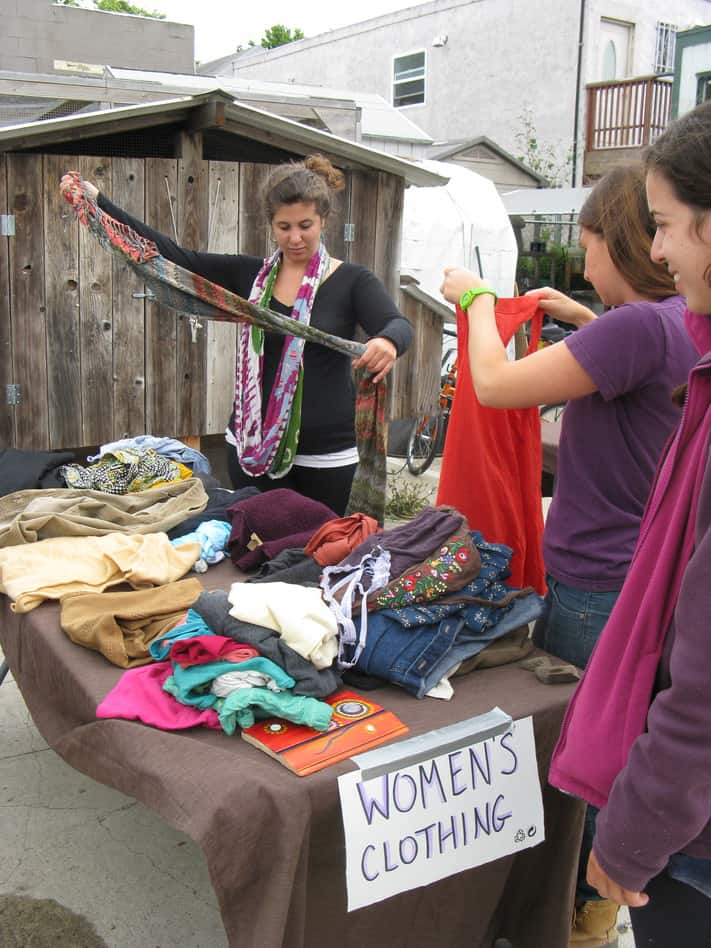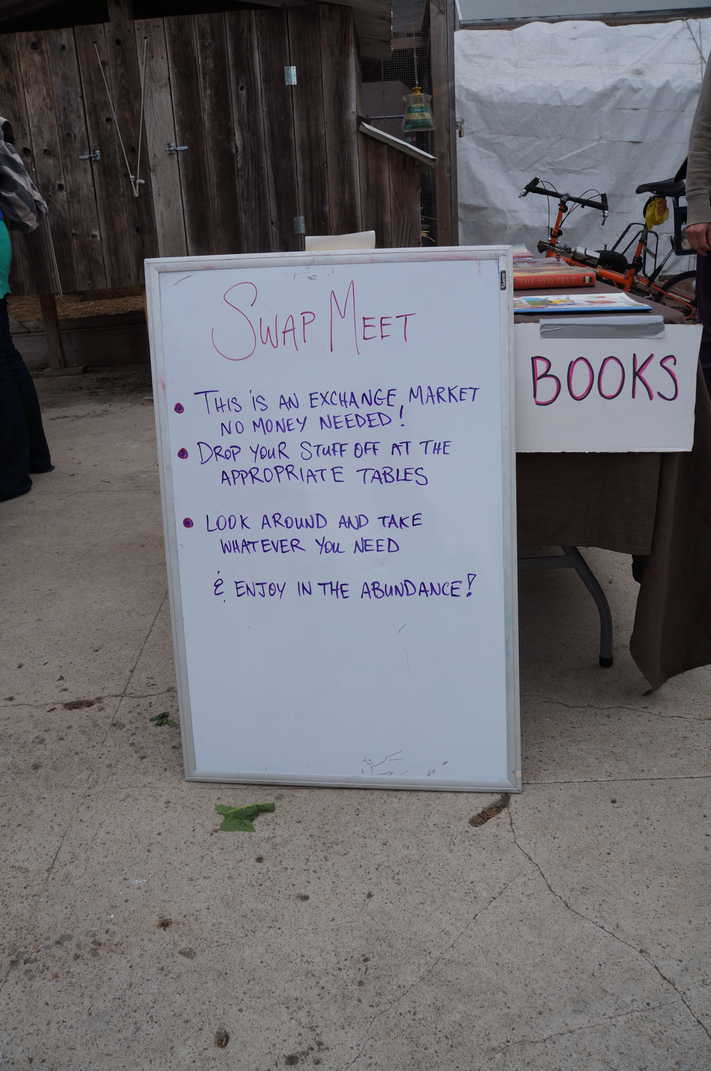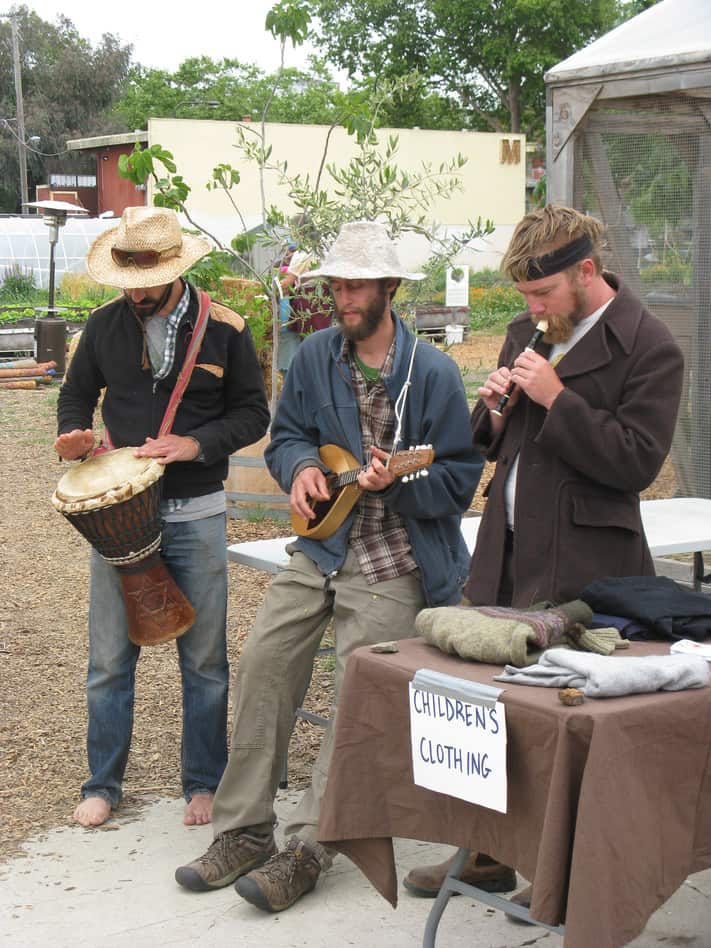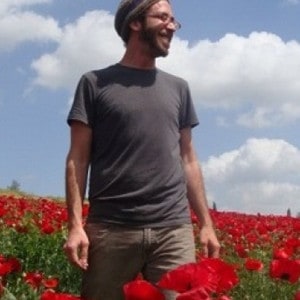by Yigal Deutscher
At the core of many of the Shmita values is this sense that we do not own our resources; that, in fact, the resources we call ours are not our property at all. On the Shmita year, private lands become open as commons. Private harvests must be shared with the community. Even private stored foods must be opened to those in need. Food and land are no longer commodities on the marketplace. They no longer carry a price tag. And the people who lay claim to such land and food are transformed from private owners to community stewards, caring for communal property.
An emphasis is placed upon the community, beyond the private individual. Perhaps the Shmita year pushed the edge a bit, putting us all in the same position together, where we had to rely on one another, enter into true interdependency, to get by on a such a year. Hopefully, the values of this year framed all others in a way that kept the community threads alive and vibrant, so that there truly was a healthy village culture. And vice versa, so that the community actions and values of the six years between each Shmita helped realize the actual Shmita year as a celebratory time, rather than a ‘community’ burden.
But either way, Shmita offers a meditation on what ownership means, what property means, and how we enter into such interactions with neighbors and friends. Do we accumulate and hoard, or do we freely share? Would we rather keep our resources private or make them available to the community? Does our wider community have the infrastructure, organizing patterns, and communication skills to make such sharing a successful practice, or would this fall into confusion and headache? What are some practices that we can begin to embrace today which will allow us to weave the fabric of community sharing in such a way that feels healthy and supportive to all?
 In alignment with the Behar campaign to raise Shmita awareness on a local level, Hazon partnered with 7Seeds and Urban Adamah, to host a Shmita-inspired community sharing day on the urban farm site in West Berkeley, California. One aspect of the day was focused on hosting a money-free swap-meet. The premise was quite simple: We each have clothing, books, tools, electronics, etc, etc sitting in our closets and in storage that we hardly need anymore, if at all. How can we activate the networks within our community so that what would otherwise be wasted is instead being channeled to sources of need? And for those of us in need, rather than depend solely on the marketplace to meet our needs and requirements, how can we look towards community members to help us? The swap-meet creates a space in which a community can gather to support healthy exchange, in a way that we release what we no longer need and gathers what serves us. This doe snot happen in a one-on-one exchange. Rather, this is happening in the spirit of generosity: Not all who come have something to donate. And not all who donate will walk away with something that meets their need. The exchange is an offering to support community resource flow, knowing that the more healthy this flow is, the healthier the entire community will be.
In alignment with the Behar campaign to raise Shmita awareness on a local level, Hazon partnered with 7Seeds and Urban Adamah, to host a Shmita-inspired community sharing day on the urban farm site in West Berkeley, California. One aspect of the day was focused on hosting a money-free swap-meet. The premise was quite simple: We each have clothing, books, tools, electronics, etc, etc sitting in our closets and in storage that we hardly need anymore, if at all. How can we activate the networks within our community so that what would otherwise be wasted is instead being channeled to sources of need? And for those of us in need, rather than depend solely on the marketplace to meet our needs and requirements, how can we look towards community members to help us? The swap-meet creates a space in which a community can gather to support healthy exchange, in a way that we release what we no longer need and gathers what serves us. This doe snot happen in a one-on-one exchange. Rather, this is happening in the spirit of generosity: Not all who come have something to donate. And not all who donate will walk away with something that meets their need. The exchange is an offering to support community resource flow, knowing that the more healthy this flow is, the healthier the entire community will be.
 Similarly, such an energetic resource flow happens with information. Just as we can hoard and accumulate tangible, physical resources, we can accumulate information. We have grown accustomed to one pattern of information exchange, where information itself becomes a commodity. In this sense, we learn when we are in school, when we are in a classroom. And we pay a heavy fee for this. In another model, learning is happening at all times. And everyone in the community is participating: we are all teachers and students, sharing our curiosities, experience, questions and skills. Just as the food and land becomes a model for community sharing and the commons on the Shmita year, so does information and education. A skill-share allows for this to take shape, where we can all come together , free of charge, to share what we are most passionate about, as an offering to the community who would want to learn with us. On the skills-share at urban Adamah, community members came out to teach fermentation, hand sewing, compost making, keeping chickens in your backyard, beekeeping, basktery, cider making, and more!
Similarly, such an energetic resource flow happens with information. Just as we can hoard and accumulate tangible, physical resources, we can accumulate information. We have grown accustomed to one pattern of information exchange, where information itself becomes a commodity. In this sense, we learn when we are in school, when we are in a classroom. And we pay a heavy fee for this. In another model, learning is happening at all times. And everyone in the community is participating: we are all teachers and students, sharing our curiosities, experience, questions and skills. Just as the food and land becomes a model for community sharing and the commons on the Shmita year, so does information and education. A skill-share allows for this to take shape, where we can all come together , free of charge, to share what we are most passionate about, as an offering to the community who would want to learn with us. On the skills-share at urban Adamah, community members came out to teach fermentation, hand sewing, compost making, keeping chickens in your backyard, beekeeping, basktery, cider making, and more!
Below are some pictures from the day:








 Yigal Deutscher is an educator, farmer and permaculture designer. He has participated in the Adamah fellowship, and trained with the University of California, Santa Cruz (Center for Agroecology & Sustainable Food Systems), as well as with the Permaculture Research Institute in Australia. Until 2010, he was the farm manager and permaculture educator at the Chava v’Adam farm in Israel, where he also founded the Shorashim/Eco-Israel apprenticeship program. He is the founder of 7Seeds, an educational platform combining Jewish indigenous teachings & Permaculture Design strategies, as well as the manager of Hazon’s Shmita Project.
Yigal Deutscher is an educator, farmer and permaculture designer. He has participated in the Adamah fellowship, and trained with the University of California, Santa Cruz (Center for Agroecology & Sustainable Food Systems), as well as with the Permaculture Research Institute in Australia. Until 2010, he was the farm manager and permaculture educator at the Chava v’Adam farm in Israel, where he also founded the Shorashim/Eco-Israel apprenticeship program. He is the founder of 7Seeds, an educational platform combining Jewish indigenous teachings & Permaculture Design strategies, as well as the manager of Hazon’s Shmita Project.




Comments are closed.